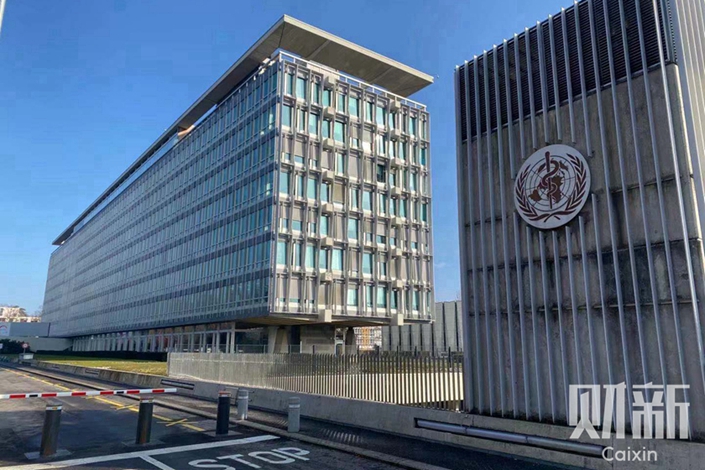Keys in Fighting Covid-19 Are Testing, Tracing, Isolation, WHO Says

 |
Testing, tracing and isolation are the measures proved to be effective in containing the Covid-19 outbreak, the World Health Organization (WHO) told Caixin while calling for global collaboration and more proactive efforts to combat the pandemic.
“Increasing social distance can slow down the spread of the virus, but it doesn’t have the same immediate impact as contact tracing and isolation, which are measures that can really help to contain the virus,” a spokesperson at the United Nations organization said Thursday in an email to Caixin.
As the highly infectious disease continues raging globally, countries have adopted different approaches to counter the virus. While some like China, Italy and India adopted massive lockdowns, others like the U.S. and Canada turned to a more piecemeal approach with emphasis of social distancing. An exceptional case was South Korea, which effectively controlled the disease through massive public testing and efficient quarantines without shutting down cities and banning travel.
Every country makes its own decisions, the WHO spokesperson said.
“What is critical at this stage is that everybody joins the efforts and does their part,” the WHO spokesperson said.
Since the novel coronavirus that causes Covid-19 first emerged in China around mid-December, the pandemic has spread rapidly to 175 countries and regions, affecting nearly 510,000 people worldwide. Global deaths from the disease surpassed 23,000 as of Thursday, data from Johns Hopkins University showed.
On March 11, the WHO declared the disease a global pandemic, spurring more countries to toughen measures to contain the virus. But there are some signs of hope as the outbreak wanes in China after nearly two months of strict quarantine measures and drastic lockdowns. China reported 67 new infections Wednesday, all among travelers from overseas, a sharp decline from the height of the outbreak in February.
Read more
Caixin’s coverage of the new coronavirus
Based on China’s experience, the WHO in its latest Joint Mission report with China recommended that countries expand surveillance to find, isolate and care for every case, to trace every contact, and to take an all-of-government and all-of-society approach.
“This is not a job for the health ministry alone,” the organization said.
The WHO also warned of inadequate measures in parts of the world.
“We’ve seen countries have diagnostic criteria that are too limiting,” the WHO told Caixin. “In others, surveillance systems must improve to meet the current threat level.”
Case isolation in some countries isn’t at the right level, leading to infected health workers, while others have given up on contact tracing too early, the UN organization said. Some countries could improve communication with their populations, and others could coordinate better with other countries and within their own governments, it said.
The WHO pledged to coordinate the global response and called for collaboration to fight the pandemic. It said misinformation and rumors such as stigmatization and discrimination against people from areas affected by the epidemic will only undermine efforts.
International collaboration is also critical for better understanding the new virus and developing treatment. The WHO said it is working with an international network of statisticians and mathematical modelers to estimate key epidemiologic parameters of Covid-19, such as incubation period, case fatality ratio and serial interval, or the time between symptom onset of a primary and a secondary case.
Six laboratories from various regions are taking part in a network dedicated to strengthening global diagnostic capacity for Covid-19 detection to improve surveillance, address testing for the virus and sharing of samples, and track the spread of disease.
Forty clinicians currently treating patients with Covid-19 in 15 countries are involved in the clinical network, which includes frontline workers from China, to discuss clinical research, the character of the disease, patient presentation, complications, challenges experienced and treatments used, according to the WHO. Sharing this information allows health workers to learn quickly what works and to address challenges together.
The WHO advises countries on actions they can take for several scenarios ― first case, first cluster and first evidence of community transmission. The basic actions in each scenario are the same, but the emphasis changes depending on which transmission scenario a country is in, it said.
The organization proactively contacts countries directly to discuss improvements that can be made and suggest how to adapt strategies.
“When the time comes, we and countries will look back to review and see where improvements could be made for next time,” the WHO said.
Contact reporter Han Wei (weihan@caixin.com) and editor Bob Simison (bobsimison@caixin.com)

- MOST POPULAR






